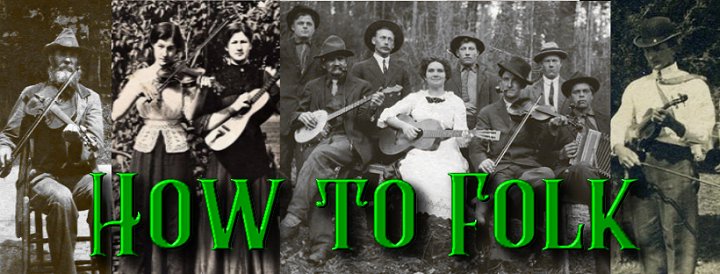
Pick up any old thing and join in!
| Please Read: How to Help Our Site at No Cost to You - Some of our articles contain recommendations for products we like and vendors we personally trust. Some of those vendors may pay us a very small commission if you click on a link and buy their products. This costs you nothing at all and helps offset the costs of what we do. So if we point you to something you decide to buy later, please make certain you come back through our site and click on the link directly. Thanks. |
| This Site is a Cookie-Free Zone - Except for discussion forums that you have to expressly register for, none of our pages use cookies of any kind. Some of the vendors we link to do, but that won't affect you unless you click on a link to their pages. Your continued use of this page indicates that you agree to our policy. For details, click here. |
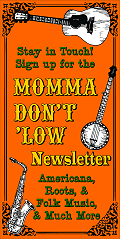
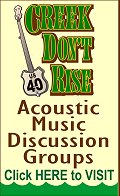

|
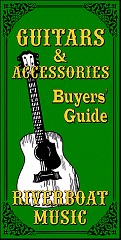
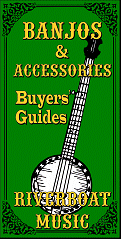
How to FolkTM
Okay, for most people "folk" isn't a verb. But for the sake of this discussion, I'm using it to describe things you should consider doing, trying, or learning about if you want to participate in a Folk community or create Folk music yourself.

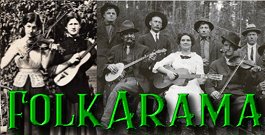 Note: - This part of the Folkarama page, which is dedicated to helping beginners "get into" Folk music and join Folk communities as easily as possible, with simple articles and links to resources that provide hands-on instruction in traditional acoustic instruments.
Note: - This part of the Folkarama page, which is dedicated to helping beginners "get into" Folk music and join Folk communities as easily as possible, with simple articles and links to resources that provide hands-on instruction in traditional acoustic instruments.
Folkarama, in turn, contains many references to more extensive articles and resources in Paul Race's CreekDontRise.com site, as well as other related pages.
Approaching Folk
- Reserve Judgment.
"Folk" means a lot of things to a lot of people, many of whom are fanatically attached to one or two aspects, but that shouldn't keep anyone from hanging and jamming with people who have different interests.
Though the peak of the "Folk Revival" was between the mid-1950s and the mid-1970s, various kinds of Folk music have been popular from 1930s through at least the 1970s. And the music touched on many styles, from British and Irish ballads and dance tunes, to Calypso, Spanish, French, Mexican, and even Eastern European and Hebrew songs.
Any Folk fan or Folk singer who sits down next to you will know songs you don't know and like certain eras and styles that aren't your favorite. And vice versa.
Your goal, as a Folk singer is to bridge gaps, even within the Folk community.
- Encourage Everybody.
During the Folk Revival era, folks who otherwise had no interest in music were buying guitars and learning at least three chords. At informal gatherings, anybody who could fog a mirror was invited to join in on whatever they brought to play. Planned "hootenannies" that were held in coffeehouses, church basements, and many more places allowed anybody at any skill level to play and sing, usually taking turns. And a surprising number of folks who showed up with a $10 guitar and three chords later evolved into master singers, songwriters, and harmonizers.
If you want to "folk" in this regard, that means you'll help and encourage people, even people you imagine are "hopeless." Mutual encouragement contributed greatly to the growth of the Folk movement n the 1950s and 1960s., and it could again.
- Learn Some Folk Songs.
Songs that are classified as "Folk" generally fall into certain patterns that you may not even be aware of, but the more songs you know, the more you'll "get" how they work, the faster you'll be able to learn new songs, and the better you'll be able to perform the songs you already know.
Just learning ten or fifteen songs will put you that far ahead when someone brings up a song you've never heard before.
Our article What Folk Songs Should I Know or Know About?" lists and provides links to many songs that the average Folk fan or singer has been exposed to during each decade of the mid-20th century, and has probably sung at one time or another. We could have easily added another three hundred, but these will give you some idea of the kinds of material you'll be encountering.
- Learn At Least Three Chords on Guitar. D and A7 for sure. G is also good. You should learn to recognize a C chord even if you never learn to play it properly. (For playing in G, there's a kind of C9 that is an easy alternative. More later.)
Also, E minor is a piece of cake to spot, and even to play.
Why is learning at least a little bit of guitar helpful? Because if you continue to Folk, even on other instruments, it's very helpful to be able to glance at the guitar player's left hand and see which chords he's using most of the time.
Resources so far:
- VERY Basic Guitar - an introduction to guitar resources for beginners, including:
- Meet Your Guitar - How to hold your guitar and pick, and some starter tips on tuning.
- Three Magic Chords - begin to unlock the mysteries of Folk guitar with the three easy chords that every Folk guitar player uses and most of them started out with.
- VERY Basic Guitar - an introduction to guitar resources for beginners, including:
- Practice the Songs You Like
Whether you are just singing, or accompanying yourself on some instrument, make a point of practicing songs you already know regularly, as well as learning new songs and practicing them.
- Hang With Folkies
We will be attempting to list music festivals and clinics that focus on acoustic instruments and include learning experiences for beginners. The link will be here Many of the best are targeted to specific instruments, so read carefully.
Conclusion
These suggestions are just a start, of course. But for all of its variations and even contradictions, Folk music is a discipline in itself, and a rewarding one of that. The more you play, sing, practice, and hang, the more you'll get out of it, the faster you'll learn in the future, and the better you'll be at whatever you already do have "under your belt."Other resources will be listed as I get to them.
Sister Sites
 Other sites we started to keep this site from getting too big to be useful include:
Other sites we started to keep this site from getting too big to be useful include:
- CreekDontRise.com is a repository of articles about Folk music and the instruments on which it has been traditionally played.
The "Acoustic" page includes a long list of articles including maintenance and playing tips on all sorts of traditional acoustic instruments.
 RiverboatMusic.com is a buyers' guide for acoustic and traditional instrument from a musician's point of view, focusing on the uses, reliability, and practicality of various instruments, and not just the marketing hype about the shape of the fret markers or whatever.
RiverboatMusic.com is a buyers' guide for acoustic and traditional instrument from a musician's point of view, focusing on the uses, reliability, and practicality of various instruments, and not just the marketing hype about the shape of the fret markers or whatever.
For instruments like dulcimers that have mostly small manufacturers or cheap imports, we try to tell you what to look for, irrespective of brand.
 Momma Don't 'Low includes a free e-mail newsletter that discusses all of those topics above and more. We plan to include other features as time permits.
Momma Don't 'Low includes a free e-mail newsletter that discusses all of those topics above and more. We plan to include other features as time permits.
Note - If you wish to sign up for our newsletter and ask a question at the same time, please click on the Momma Don't 'Low newsletter button to learn more and to get a link to our signup form.
 PaulRaceMusic.com is the "landing page" for Paul's own musical endeavors, plus many memoirs and blogs about music and the music business.
PaulRaceMusic.com is the "landing page" for Paul's own musical endeavors, plus many memoirs and blogs about music and the music business.
 ClassicTrainSongs.com describes railroad songs that every train lover should know. Or at least know about.
ClassicTrainSongs.com describes railroad songs that every train lover should know. Or at least know about.
- SchoolOfTheRock.com has articles about Christian music, Christian music careers and performance, Christian living in general, and vintage saxophones, another of Paul's interests. This site has separate newsletters, etc., by the way - there isn't a lot of overlap with the Momma Don't 'Low(tm) newsletters.
For information about other music collections and projects, check the links at the bottom of this page.
 Whatever else you get out of our pages, I hope you come away with some great ideas for "sharing the joy."
Whatever else you get out of our pages, I hope you come away with some great ideas for "sharing the joy."
And please stay in touch!
All material, illustrations, and content of this web site is copyrighted (c) 2001, 2002, 2003, 2004, 2005, 2006,
2007, 2008, 2009, 2010, 2011, 2012, 2013, 2014, 2015, 2016, 2017, 2018, 2019, 2020, 2021, 2022, 2023 by Paul D. Race. All rights reserved.
Creek Dont' RiseTM is a participant in the Amazon Services LLC Associates Program, an affiliate advertising
program designed to provide a means for sites to earn advertising fees by advertising and linking to Amazon.com.
For questions, comments, suggestions, trouble reports, etc. about this page or this site, please contact us.
| Visit related pages and affiliated sites: | |||||
| - Music - | |||||

|
 |
 |

|

|

|

|

|

|

|

|

|

|

|

|

|

|

|
| - Trains and Hobbies - | |||||
 |

|

|  |
 |

|
| - Christmas Memories and Collectibles - | |||||
 |

|
 |

|
 |

|
| - Family Activities and Crafts - | |||||
 |

|

|

|

|

|

